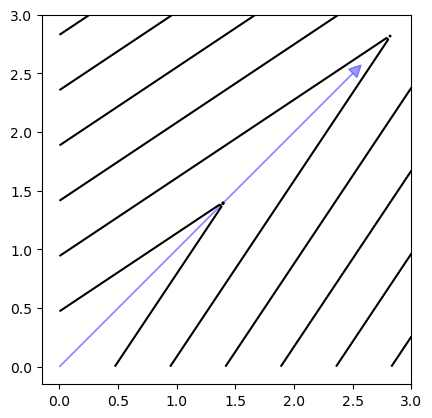Decomposition#
Also, multi-objective problems can be decomposed using a scalarization function. In the following, the contour lines of different methods are shown.
Let us first make the necessary imports and define the points in the design space:
[1]:
import matplotlib.pyplot as plt
import numpy as np
from pymoo.util.misc import all_combinations
# number of points to be used for plotting
n_points = 100
# the xlim
P = np.linspace(0, 3, n_points)
# used for the meshgrid
X = all_combinations(P,P)
A method to plot the contours:
[2]:
def plot_contour(X, F):
_X = X[:, 0].reshape((n_points,n_points))
_Y = X[:, 1].reshape((n_points,n_points))
_Z = F.reshape((n_points,n_points))
fig, ax = plt.subplots()
ax.contour(_X,_Y, _Z, colors='black')
ax.arrow(0, 0, 2.5, 2.5, color='blue', head_width=0.1, head_length=0.1, alpha=0.4)
ax.set_aspect('equal')
And then define the weights to be used by the decomposition functions:
[3]:
weights = [0.5, 0.5]
Weighted Sum#
[4]:
from pymoo.decomposition.weighted_sum import WeightedSum
dm = WeightedSum()
plot_contour(X, dm(X, weights=weights))
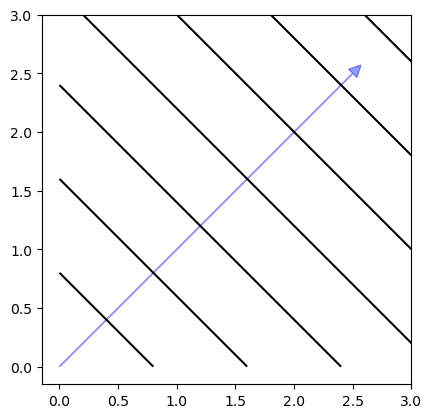
Tchebycheff#
[5]:
from pymoo.decomposition.tchebicheff import Tchebicheff
dm = Tchebicheff()
plot_contour(X, dm(X, weights=weights))
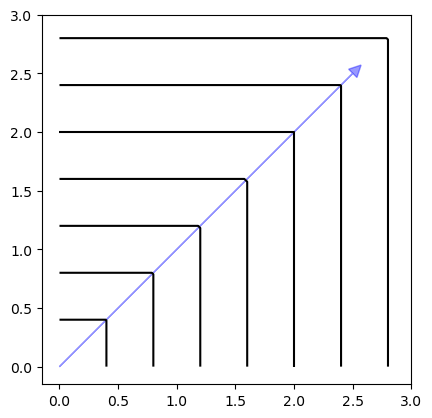
Achievement Scalarization Function (ASF)#
Details can be found in [55].
[6]:
from pymoo.decomposition.asf import ASF
dm = ASF(eps=0.0)
plot_contour(X, dm(X, weights=weights))
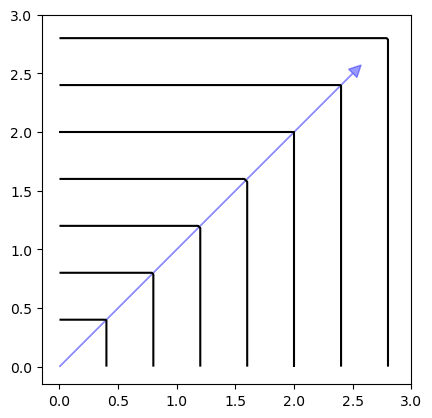
Augmented Achievement Scalarization Function (AASF)#
Details can be found in [56].
[7]:
from pymoo.decomposition.aasf import AASF
dm = AASF(eps=0.0, beta=5)
plot_contour(X, dm(X, weights=weights))
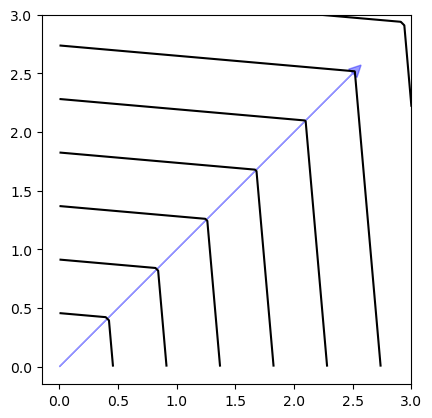
[8]:
dm = AASF(eps=0.0, beta=25)
plot_contour(X, dm(X, weights=weights))
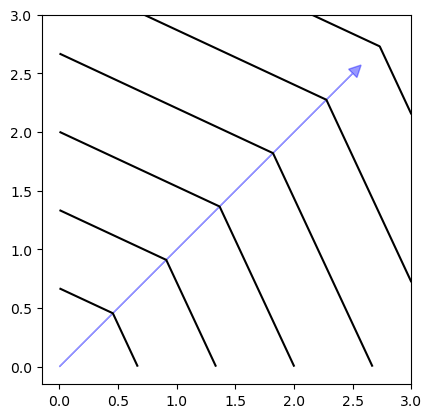
PBI#
[9]:
from pymoo.decomposition.pbi import PBI
dm = PBI(eps=0.0, theta=0.5)
plot_contour(X, dm(X, weights=weights))
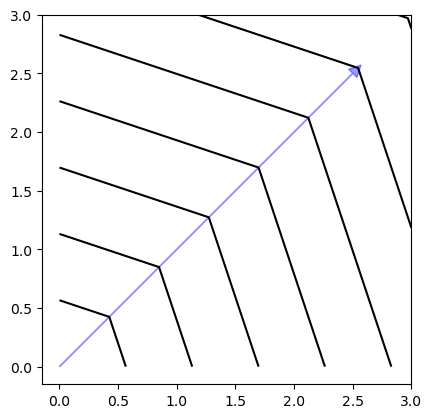
[10]:
dm = PBI(eps=0.0, theta=1.0)
plot_contour(X, dm(X, weights=weights))
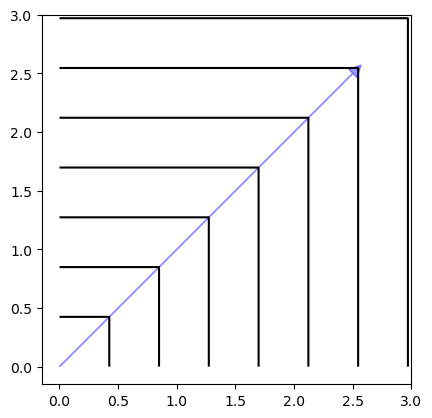
[11]:
dm = PBI(eps=0.0, theta=5.0)
plot_contour(X, dm(X, weights=weights))
